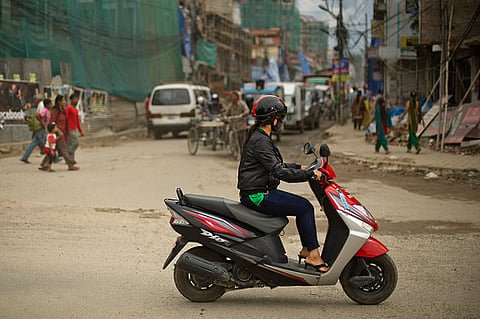Far from truth: On the policing of sexuality of migrant workers’ wives in Nepal
Every day around 1500 people leave Nepal to work abroad in the Gulf countries and Malaysia. For most migrant workers, the goal is simple – to have an attractive job and money enough to get married and raise a family. While the economic benefits of having a job abroad are well documented (remittances contribute to almost 29 percent of the country's GDP in 2013), its impact on migrant workers, their families and social life is only now beginning to be realised. For instance, a job abroad might make a migrant worker highly marriageable, but what of the stress on marriage once they leave and are separated from their family for years. Analysts have already linked the falling agricultural productivity in rural Nepal to the dearth of young males. Now they are concerned that the process of reconstruction in Nepal following the April-May 2015 earthquake will be affected adversely as well. A less documented aspect is how migration changes the social landscape, in particular, gender dynamics. International migration of men, for example, has already contributed to the internal migration of women – from private domains to public spheres. But will this lead to the sexual liberation of women in Nepal? Will migration level the playing field for men and women? These questions are being asked only now.
To most people in Nepal, the word lahure – a term initially used for Nepali soldiers who enlisted in Maharaja Ranjit Singh's army in Lahore in the 19th century, and later in the British East India company – does not just mean army man, or combatant, nor does it simply connote the rich or spoiled. It also evokes the idea of a 'lahure's wife' who is more than just a woman married to a soldier who is never around. The term is suggestive of a sexually frustrated, 'loose' woman, a stereotype imposed for centuries.

